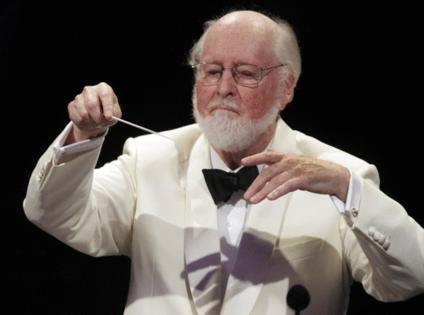Hollywood Bowl names stage for John Williams, honoring a decades-long partnership
Published in Entertainment News
LOS ANGELES — For generations of Angelenos, summer at the Hollywood Bowl meant John Williams on the podium, lightsabers glowing in the crowd as he led the Los Angeles Philharmonic through "Star Wars," "E.T." and "Indiana Jones." Now 93, with his baton mostly set aside, Williams still looms over the Bowl each summer, his music echoing through the amphitheater, played by the orchestra he helped make synonymous with Hollywood.
That bond has been made official.
The Los Angeles Philharmonic will announce Tuesday that it is naming the venue's stage for Williams — the first time in the Bowl's 103-year history that its stage has been dedicated to an artist.
It's hard to imagine a more fitting choice. Few composers have left a deeper imprint on Hollywood, or on the collective imagination of the people who fill the Bowl's seats. Williams' five Academy Awards and 54 nominations (a count second only to Walt Disney himself) span a career that has defined blockbuster cinema. His work with George Lucas on "Star Wars" created what may be the most recognizable movie theme ever written. Over 29 films and nearly half a century, Williams' collaboration with Steven Spielberg has produced the scores for "Jaws," "E.T. the Extra-Terrestrial," "Raiders of the Lost Ark," "Jurassic Park" and "Schindler's List."
The honor was celebrated Sunday morning in a private ceremony at the Bowl attended by Williams, Spielberg, Lucas and L.A. Phil music and artistic director Gustavo Dudamel. The orchestra's brass ensemble performed the composer's "Music for Brass," violinist Anne Akiko Meyers and pianist Joanne Pearce Martin played his "Theme from Sabrina," and speakers reflected on Williams' six-decade partnership with the orchestra and the Bowl. A short tribute video chronicled his influence across generations of musicians and audiences worldwide.
Addressing the crowd at Sunday's event, Dudamel recalled first hearing Williams' music as a boy in Venezuela, going to see films like "Star Wars" and "Jurassic Park" again and again just to listen to the scores. Years later, he said, when he met Williams at 24, he finally understood the connection between the composer's music and his character: "The generosity I heard in the music was the generosity of the man."
Speaking on behalf of the Philharmonic, Dudamel called it a privilege to honor the composer who has guided and inspired generations of musicians. "Today this wonderful relationship becomes eternal," he said. "This is your stage, John, and it has been for these 46 years."
Williams first took the Bowl podium in 1978, stepping in on short notice for ailing house conductor Arthur Fiedler while on a break from scoring "Superman," according to journalist Tim Greiving, author of a recent Williams biography. That single appearance evolved into a summer tradition that lasted decades, with sold-out weekends that drew nearly 18,000 people a night and helped make orchestral film music central to the Bowl's identity.
His summer concerts became civic rituals: families picnicking, fans waving lightsabers in time to "The Imperial March" and Williams emerging each night to ovations more often reserved for rock stars. In 2023, during one of his final appearances, he even sparred playfully onstage with Dudamel in a mock lightsaber duel that brought the audience to its feet.
In a statement accompanying the announcement, Spielberg paid tribute to Williams' transformative influence on film, saying, "Without John Williams, bikes don't really fly, nor do brooms in Quidditch matches, nor do men in red capes. There is no Force, dinosaurs do not walk the Earth. We do not wonder, we do not weep, we do not believe."
Philanthropic support for the dedication came from friends and collaborators, including Spielberg and Kate Capshaw's Hearthland Foundation, Kathleen Kennedy and Frank Marshall, Seth MacFarlane and the Katie McGrath and J.J. Abrams Family Foundation.
At Sunday's ceremony, Williams expressed gratitude for a recognition that, he said, went beyond anything he could have imagined when he first stood on the Bowl stage nearly half a century ago.
"This is an honor that is unprecedented and unequaled in generosity shown by the Los Angeles Philharmonic family — my family — in making this dedication," he said. "I want to thank all of the donors in this effort, who proudly support and salute the work done by the Los Angeles Philharmonic, one of the great orchestras of the world. The uniqueness of this honor is certainly unheard of, and I thank all of you."
©2025 Los Angeles Times. Visit latimes.com. Distributed by Tribune Content Agency, LLC.













Comments